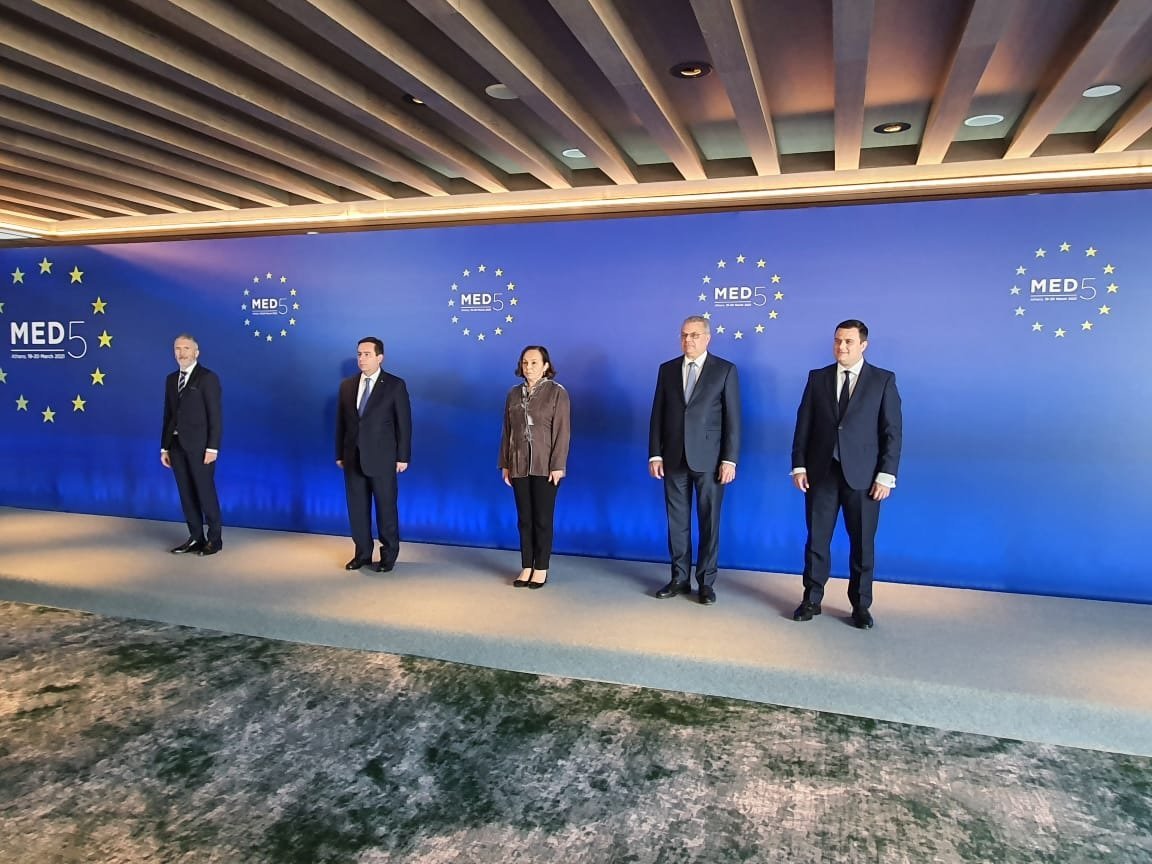Cyprus will fail to manage the migration flow to the island unless the EU adopts a “coordinated, fair and balanced” policy which would be tailored to its member states, Interior Minister Nicos Nouris said on Saturday.
The minister was talking at the MED 5 Informal Ministerial Meeting in Athens, in which his counterparts from Greece, Italy, Malta, and Spain participated. The aim was to discuss the migration crisis and the New European Pact on Migration and Asylum.
“No matter how much effort we put in, no matter how many resources we have, if there is no coordinated, fair and balanced European immigration policy based on solidarity and fair burden-sharing, both Cyprus and many other countries will unfortunately fail. And in such a case, the whole [European] union will be harmed,” Nouris said.
According to the minister, Cyprus was seeing the highest migration flows among other EU member states for the fourth consecutive year, constituting 4 per cent of the population in the government-controlled areas.
“Only for the two years 2019 – 2020 new asylum applications reached 25,894 people,” Nouris said.
“My country is called upon to lift this disproportionate burden and to manage these flows that create increased infrastructural needs,” the minister said.
Cyprus has been criticised for failing to establish a comprehensive integration plan for third-country nationals, which falls under the obligation of EU and international conventions.
The poor living conditions at the Pournara migration reception centre in Nicosia were also often criticised, especially after the ministry decided to keep people in the centre until their application was processed, which can take several months, while the facilities were built to host people for a maximum of 72 hours.
Putting migrant reception centres in lockdown is a violation of migrant children’s basic human rights and liberties, according to Children’s Rights Commissioner Despo Michaelidou, as they have been deprived of the right to physical attendance at school since mid-November 2020.
Despite the significant support and assistance provided by the European Commission, the European Asylum Service EASO, Frontex and other related organisations,” Cyprus faces illegal arrivals of migrants from Turkey on a daily basis, mainly through the Green Line from our occupied territories,” Nouris said.
“Turkey must cooperate and accept Frontex surveillance of its southern coastal areas from which they depart daily boats with illegal immigrants.”
The surveillance was part of Turkey’s obligations under the terms of the 2015 agreement with the European Union to help stem irregular migration.
The European Commission, he said, should proceed with negotiations with countries in Africa, the Middle East and Asia such as India Pakistan and Bangladesh to reach agreements on the return and resettlement of their nationals.
“Countries with which such agreements will be promoted will have to commit to compliance with all Member States with severe sanctions in the event of non-compliance by third countries,” Nouris added.
Last year the state refused entry to several boats filled with people seeking asylum, citing the coronavirus pandemic.







Click here to change your cookie preferences